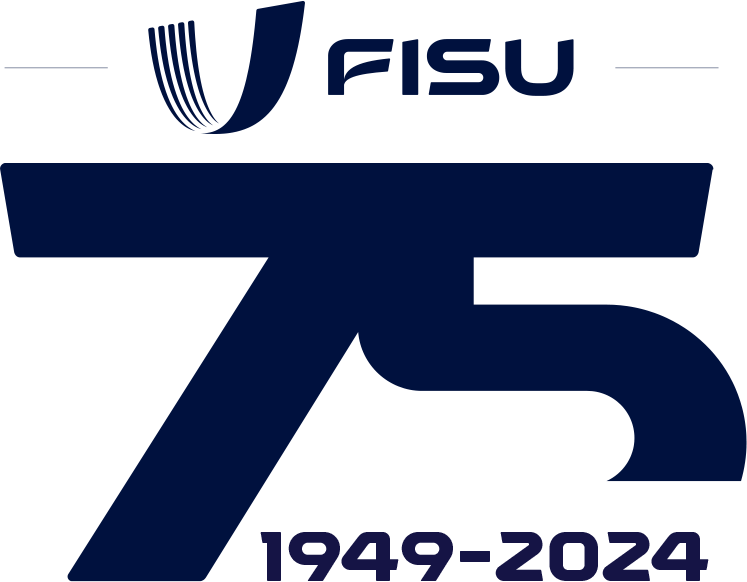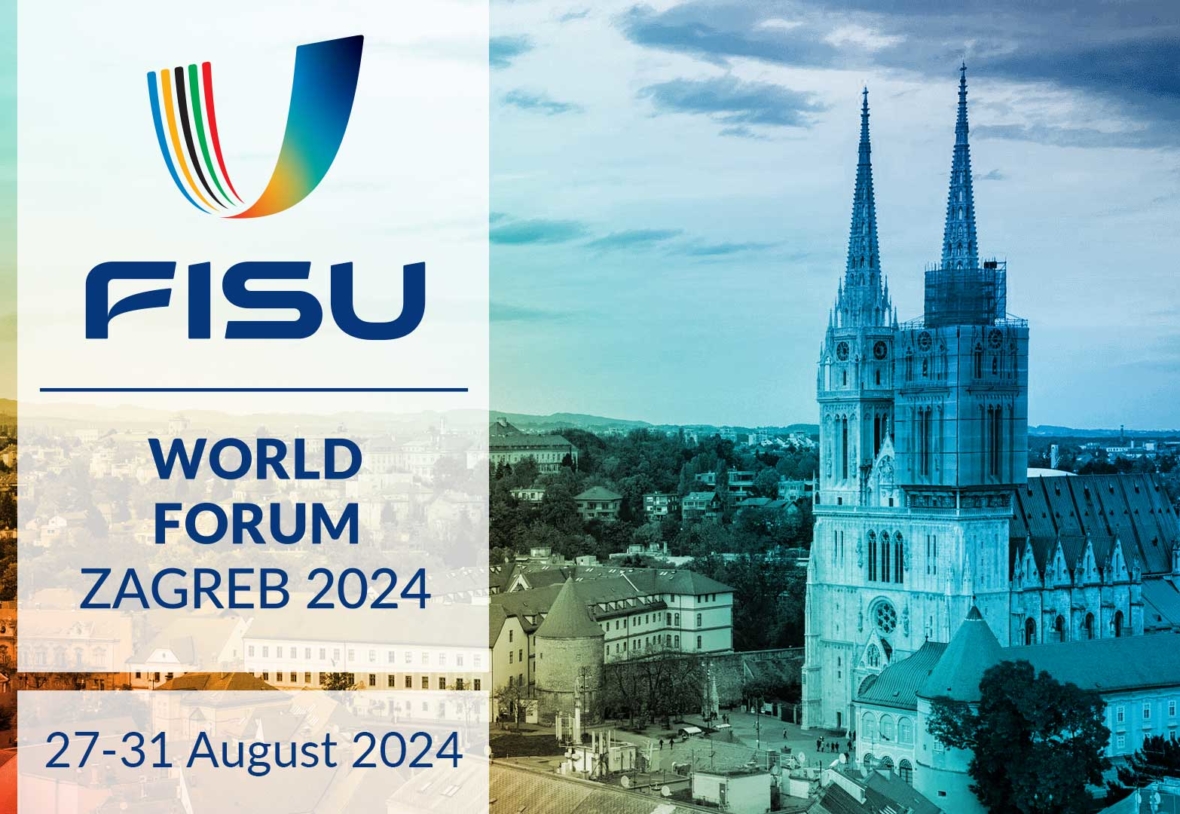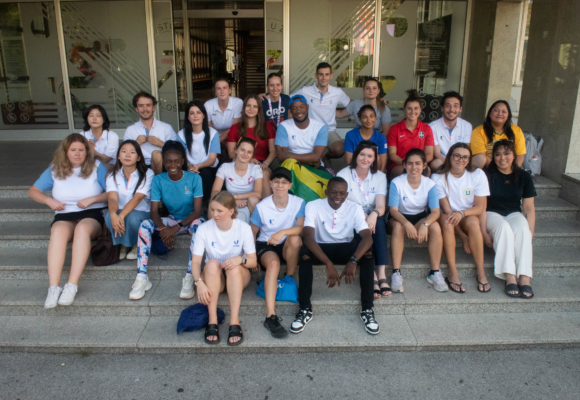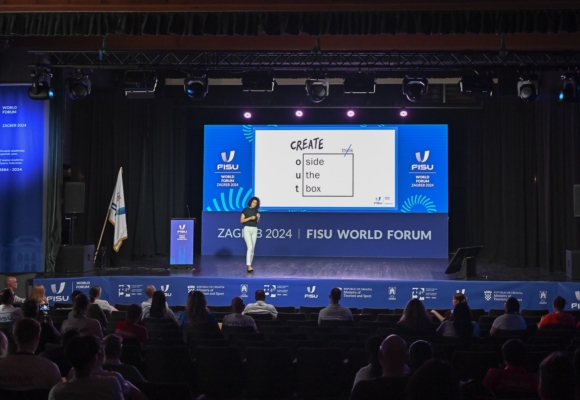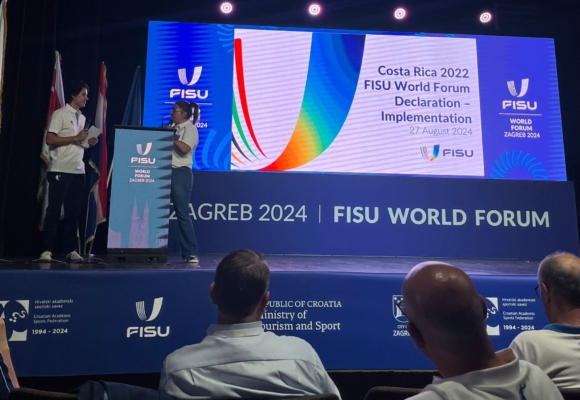About 50 National University Federations have signed up to take part to the Zagreb 2024 FISU World Forum, which will take place from 27-31 August.
Representatives of national and continental university sports federations, international sports and educational organisations, organisers of FISU events, FISU Family members and students are all making their way to Croatia to take part to the Zagreb 2024 FISU World Forum.
With a constantly evolving format, the FISU World Forum aims at providing a marketplace for discussions on ideas and projects for its participants. Students also have project management sessions, young leaders develop their initiatives focusing on the main theme of each event and present their projects to all the participants and to FISU.
A place of exchange
The first edition of the FISU World Forum was organised in 1992, which gathered 89 participants from 21 countries. Through 16 editions, the FISU World Forum has been organised on 4 continents and reached around 2800 participants. Participants also had opportunities to practice different sports – from curling to handball, badminton to archery among many others. The FISU World Forum is a place to exchange ideas and best practices. The International University Sport Federation brings together specialists and students to reflect on common themes. The last one was held in Costa Rica in 2022 – with “University Sport as a Driver for Sustainable Development” as it’s theme. Before that, there was the Budapest 2020 FISU World Forum, which took place partly online and partly in person due to the pandemic.
Between 27-31 August, the five day programme in Zagreb will be an exciting one. There will be the student fair, where all participants showcase their home countries and traditions, panel discussions, sport practices, get togethers, many presentations and of course the important student projects.
The Zagreb 2024 FISU World Forum has also invited really interesting keynote speakers, who will all intervene under the common theme: “University Sport: Creating a Better World”. Find out a little more about them before they address the participants.
Daniela Heerdt, Centre for Sports and Human Rights: “A world of responsible sport in and through education“
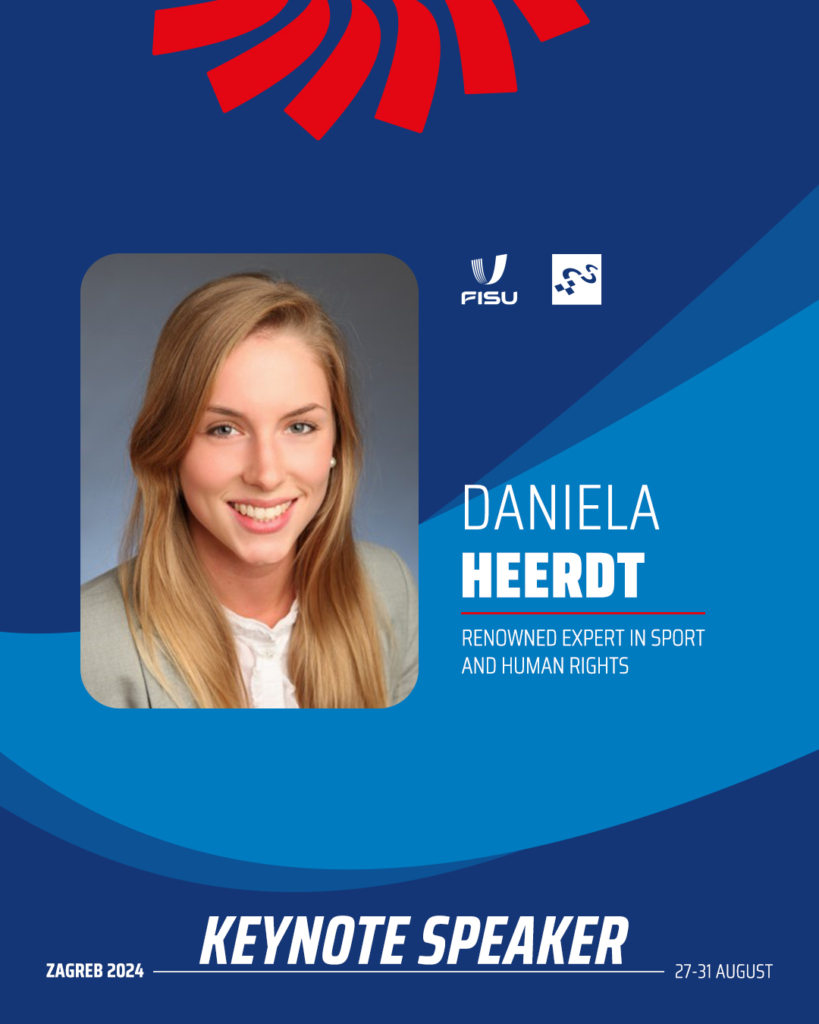
Daniela Heerdt has multiple years of experience working with international organisations, sports bodies, civil society and academic institutions on a range of intersecting topics within the sport and human rights field, including the human rights impacts of mega-sporting events, remedy of sport-related human rights abuses, or gender and sports. In 2021, Daniela defended her PhD dissertation, titled “Blurred lines of responsibility and accountability: Human rights abuses at mega-sporting events”, which deals with the establishment of responsibility for human rights abuses that occur in the context of hosting mega-sporting events.
Verity Postlethwaite, Loughborough University: “A critical reflection on the opportunities and challenges of operationalising sport in/for diplomatic goals”
Dr Postlethwaite’s research is broadly focused on how events have been used in local, national, and international contexts as a catalyst for social changes associated with disability, gender, and geographic inequalities. Her research explores the governance, diplomacy, and policy processes involved in achieving social and community impacts through events. A consistent thread throughout Verity’s eclectic research portfolio is the shared vision for creating equitable and inclusive opportunities for communities who are often marginalised or overlooked in governance processes.
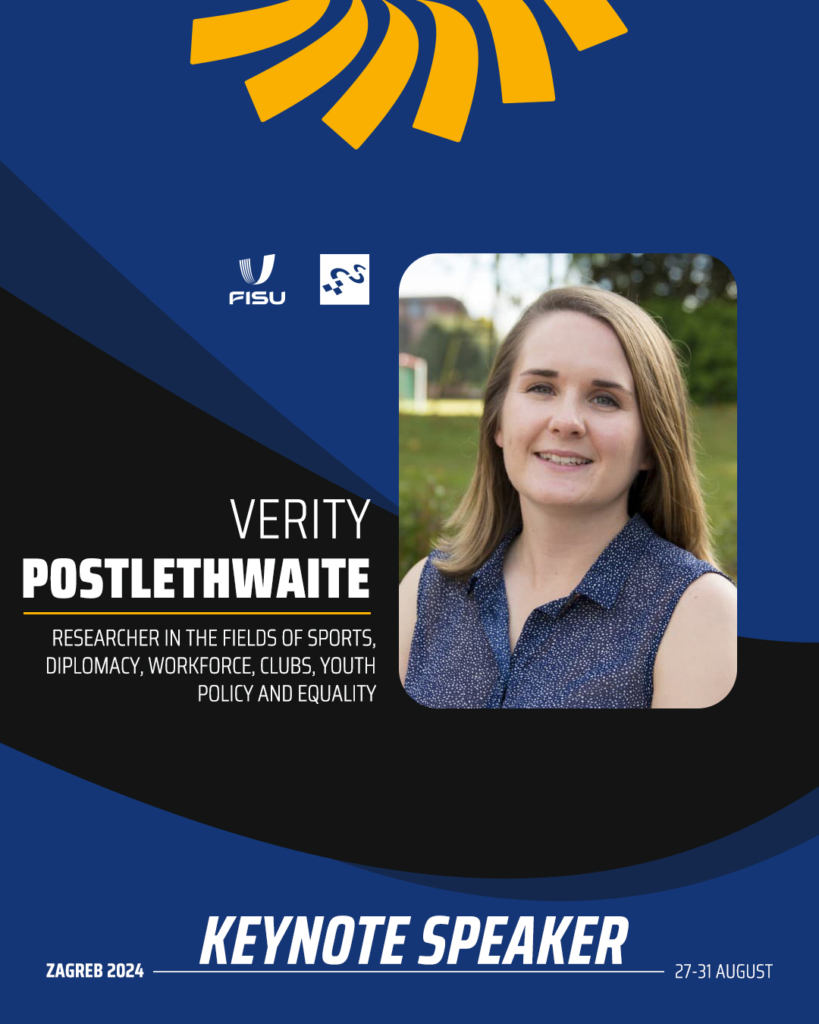
Gavin Price, Sports Diplomacy Alliance, “Becoming a Sports Diplomat: Knowledge, Skills, and Experience”

Gavin’s career spans 15+ years of experience in international trade, intercultural relations and leadership across the Australian, UK and international public sectors. He is an expert on sports diplomacy for small nations. An internationally networked individual, Gavin Price pioneered the innovative field of sports paradiplomacy, including successful projects involving government, business, the sportscape and academe in Wales (UK), the Basque Country and with other peak non-state sporting actors.
Aziza Sbaity, Athlete: “Diversity and Inclusion in Sports”
Celebrated as “the fastest Lebanese woman in history” after breaking the national record in the 100 meters, Aziza Sbaity recently made headlines again by becoming the first black athlete from her country to win gold at the West Asia and Arab Championships this year. Born to a Liberian mother and a Lebanese father, she moved to Lebanon at the age of 11, where she encountered racism and colour-based classism. Athletics allowed her to discover and emancipate herself, and nourished her commitment to the defence of human rights. She uses her position to speak out about systemic racism in the country and advocate for inclusion and equality, and she collaborates with schools and universities to inspire Lebanese youth.
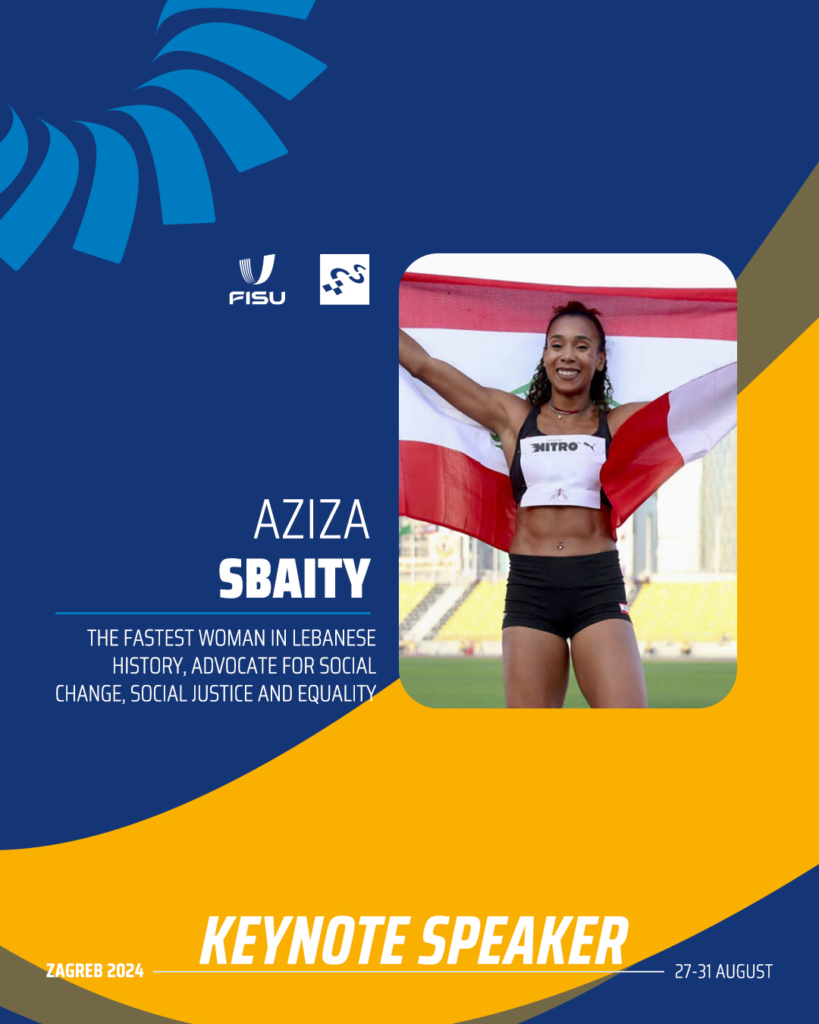
Marina Drašković, European Judo Union (topic to be confirmed)
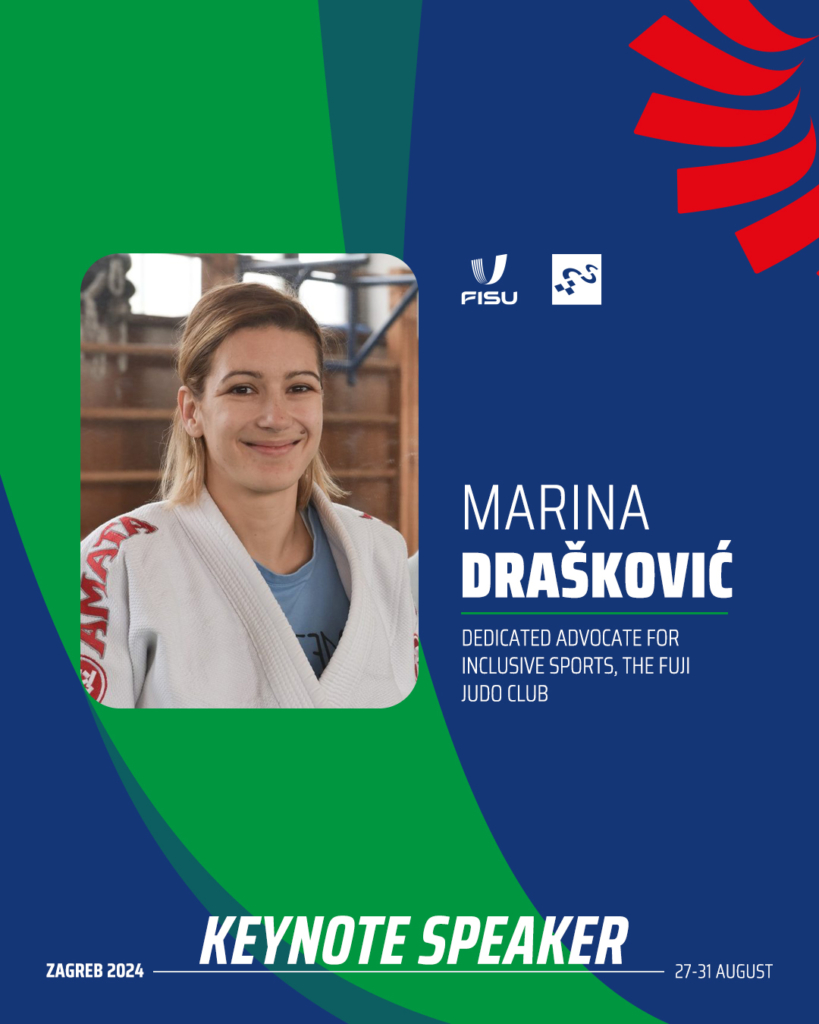
As former professional judoka and longtime member of the Croatian Judo National Team, Marina Drašković is breaking down participation barriers in judo and creating new standards of sports inclusion not just in Croatia, but across the whole of Europe. In 2012 she founded the Judo Club for People with Disabilities Fuji, bringing together children and young people with cerebral palsy, Down Syndrome, intellectual disabilities, motor difficulties, autism spectrum disorders and others. Youth with disabilities are among the most vulnerable groups in society. By becoming head of the Adapted Judo programme within the European Judo Union (EJU), Marina is climbing new heights and laying the foundation for the development of adaptive Judo all over Europe.
You can find more details on the programme on the event’s official website as well as on its social media channels.
